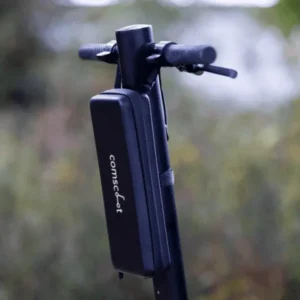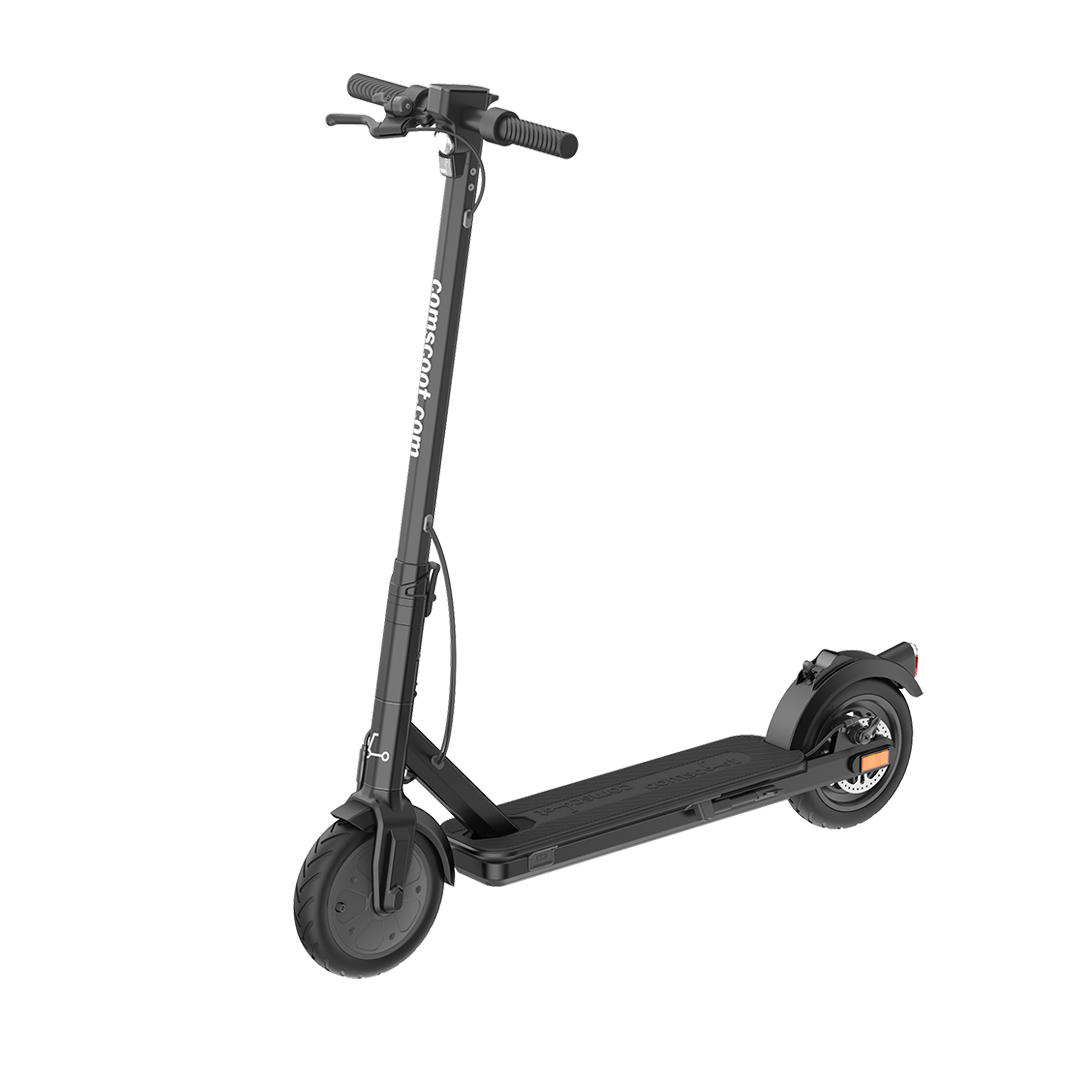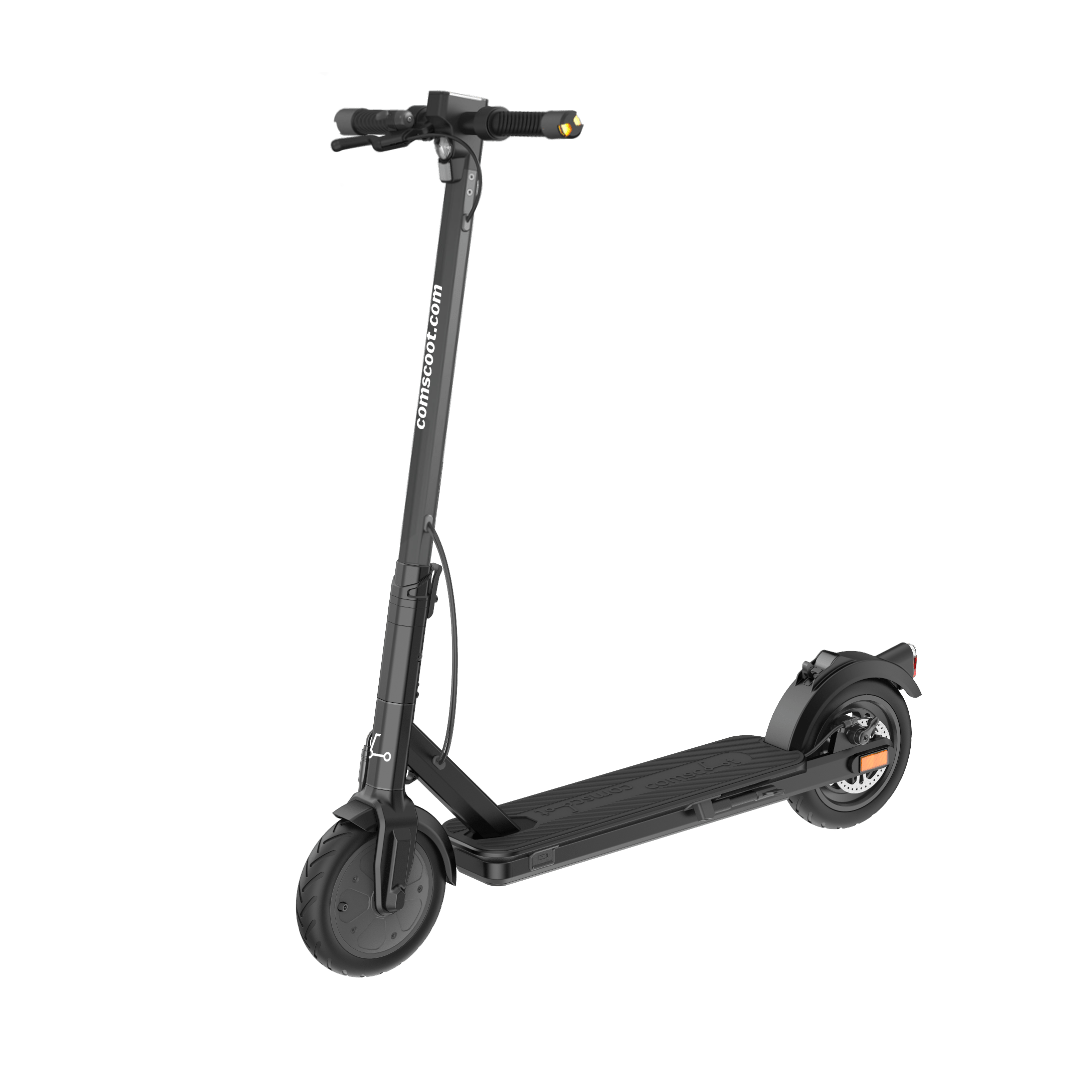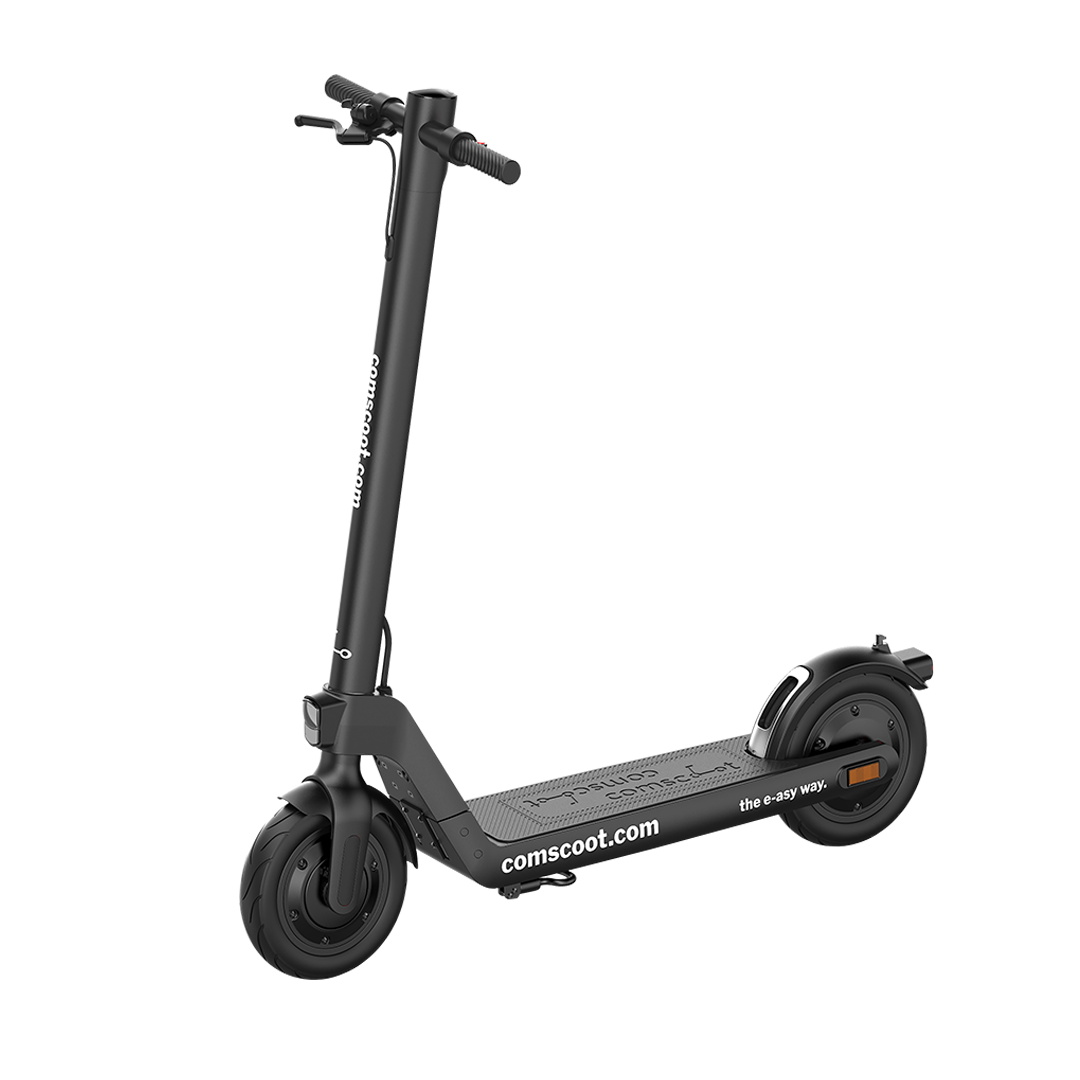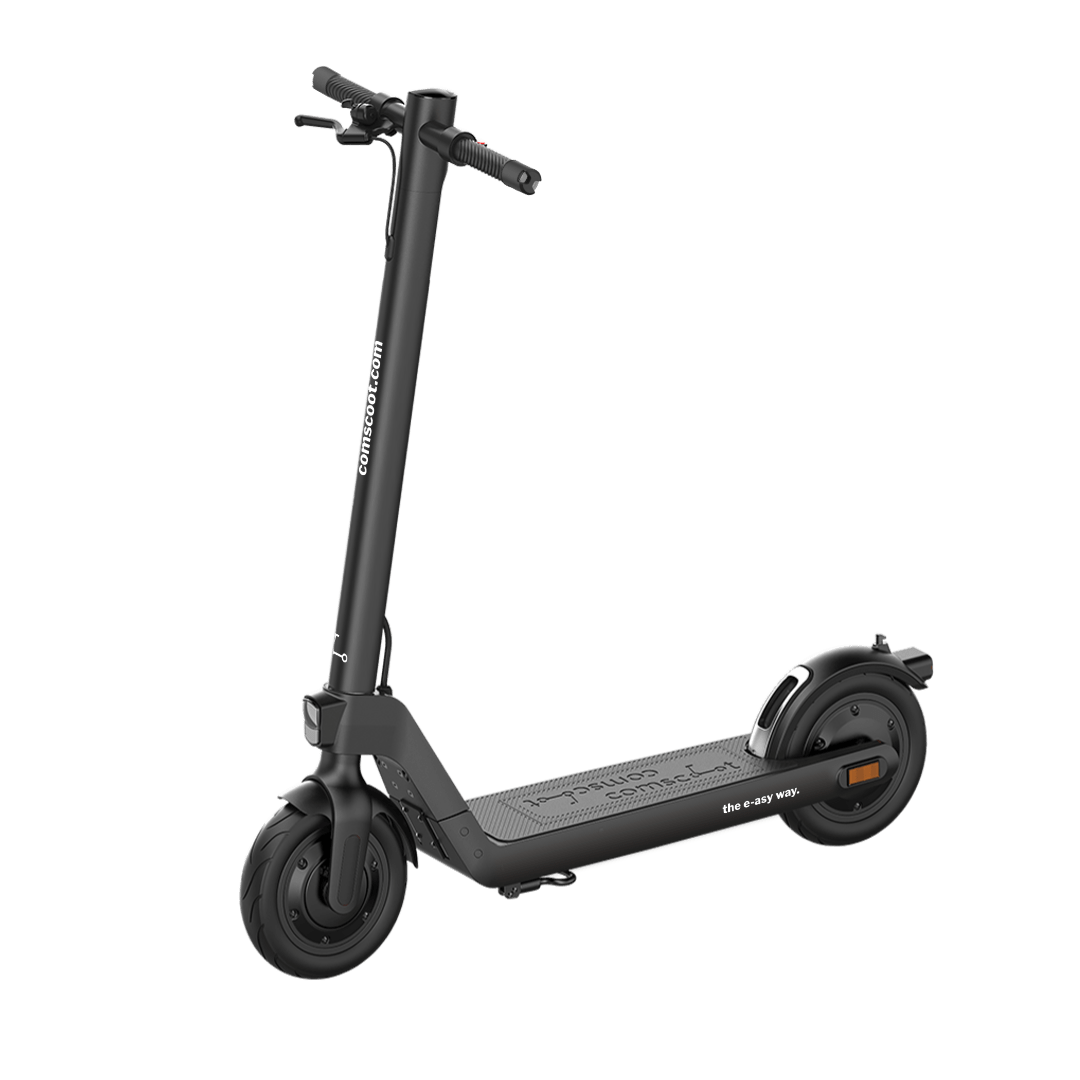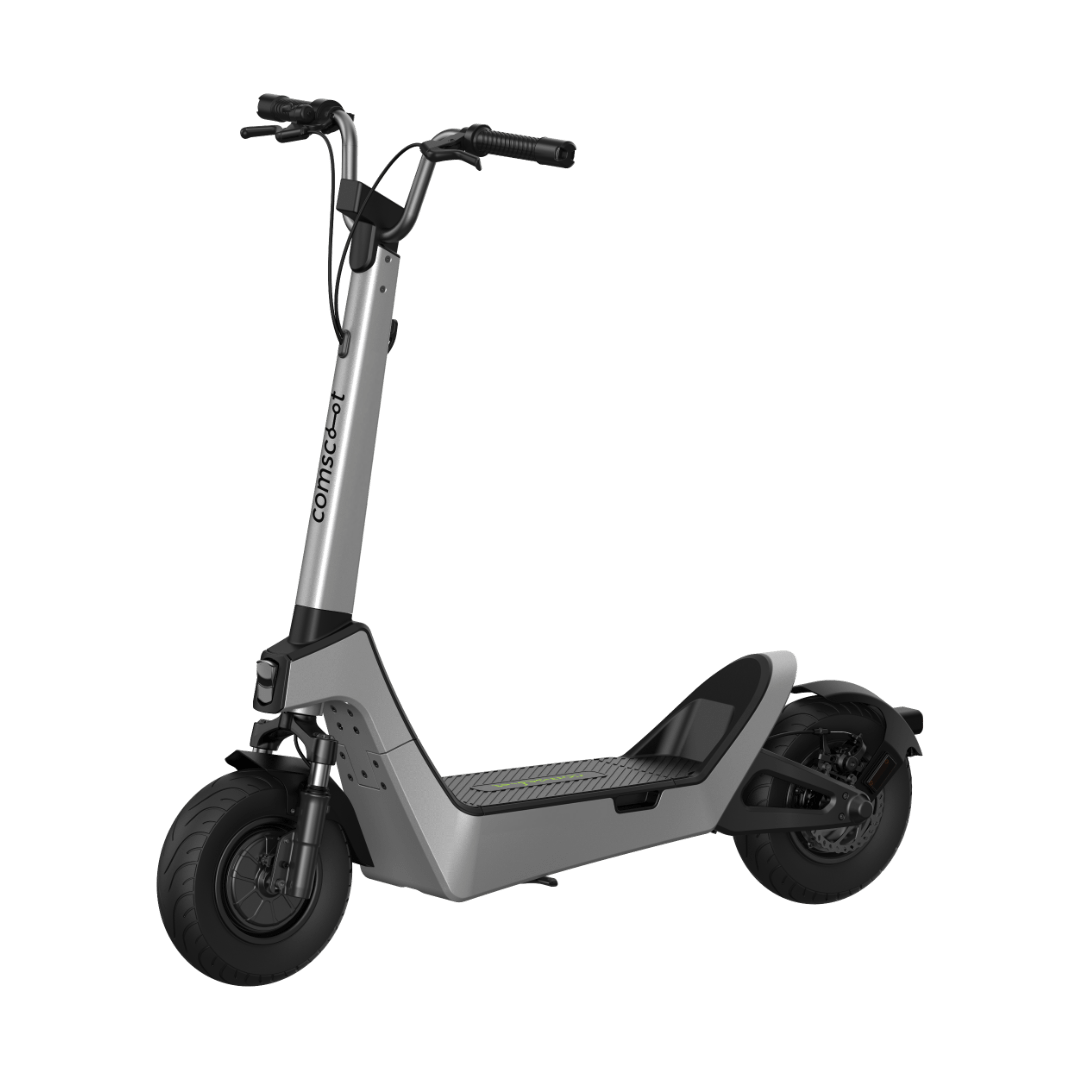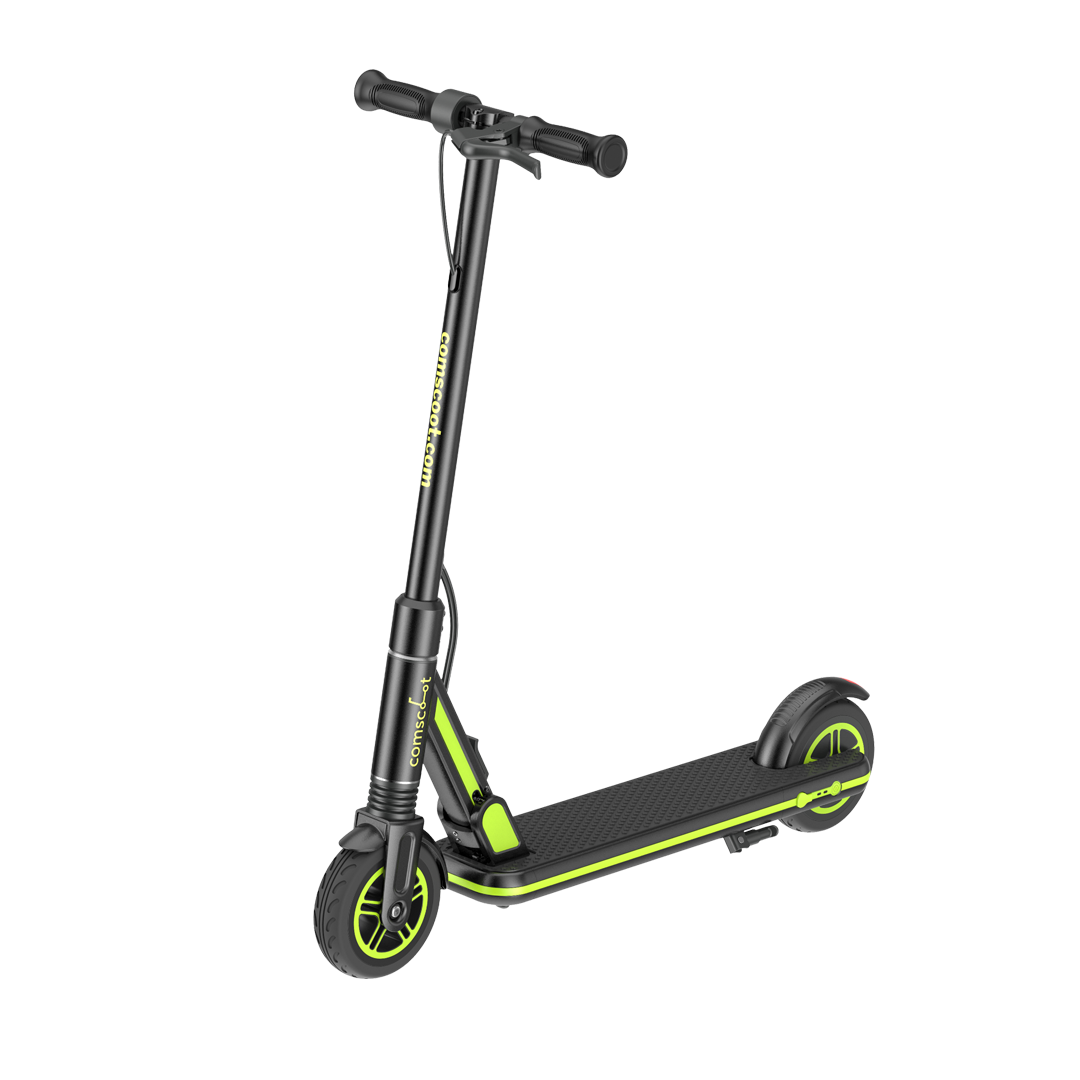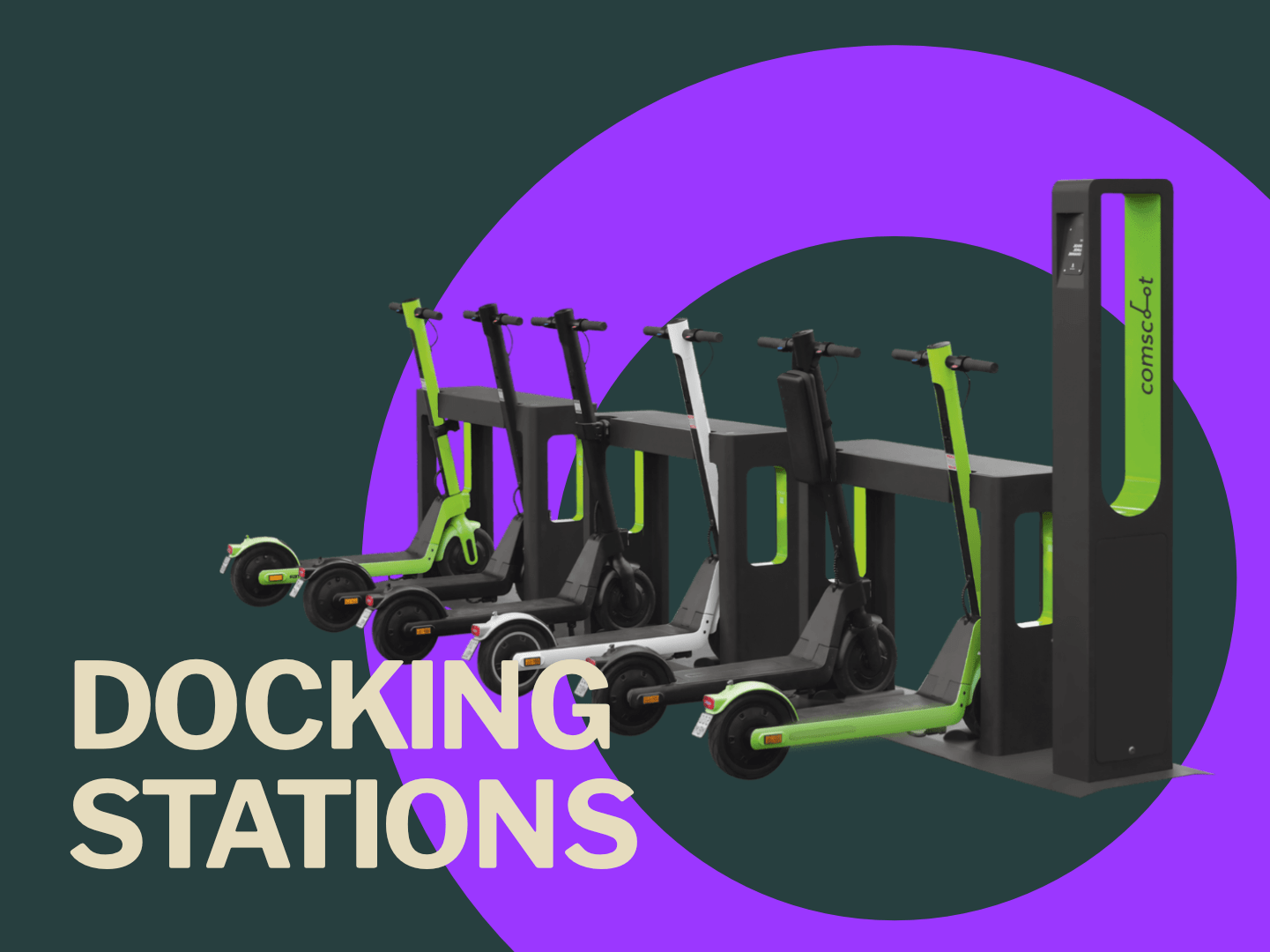General Terms and Conditions with Customer Information
1. scope of application
2. offers and service descriptions
3. order process and conclusion of contract
4. prices and shipping costs
5 Delivery, availability of goods
6. payment modalities
7. retention of title
8 Warranty for material defects and guarantee
9. liability
10. storage of the text of the contract
11. final provisions
1. scope of application
1.1. The business relationship between comscoot GmbH, owner: Georg Schnabel, Philipp Oswald, Südbahnweg 17-19,8403 Lebring (hereinafter “Seller”) and the customer (hereinafter “Customer”) is governed exclusively by the following General Terms and Conditions in the version valid at the time of the order.1.2. A consumer within the meaning of these GTC is any natural person who enters into a legal transaction for a purpose that is predominantly neither commercial nor self-employed. An entrepreneur is a natural or legal person or a partnership with legal capacity who, when concluding a legal transaction, acts in the exercise of his commercial or independent professional activity.
1.3. Deviating terms and conditions of the customer shall not be recognised unless the seller expressly agrees to their validity.
2. offers and service descriptions
2.1 The presentation of the products in the online shop does not constitute a legally binding offer, but an invitation to place an order. Descriptions of services in catalogues and on the Seller’s websites do not have the character of an assurance or guarantee.2.2 All offers are valid “while stocks last” unless otherwise stated with the products. Errors and omissions excepted.
3. order process and conclusion of contract
3.1. The customer can select products from the seller’s range without obligation and collect them in a so-called shopping cart by clicking on the Add to cart button. Within the shopping basket, the product selection can be changed, e.g. deleted. The customer can then proceed to complete the order process within the shopping basket by clicking on the checkout button.3.2. By clicking on the button Order with payment obligation, the customer submits a binding application to purchase the goods in the shopping basket. Before submitting the order, the customer can change and view the data at any time and use the browser function “back” to return to the shopping basket or cancel the ordering process altogether. Required information is marked with an asterisk (*).
3.3. The seller then sends the customer an automatic confirmation of receipt by e-mail. The automatic acknowledgement of receipt merely documents that the seller has received the customer’s order and does not constitute acceptance of the application. The purchase contract is concluded as of the completion of the payment process.
3.4. If the seller allows payment in advance, the contract is concluded with the provision of the bank details and request for payment. If the payment has not been received by the Seller within 10 calendar days after sending the order confirmation despite the due date even after a renewed request, the Seller shall withdraw from the contract with the consequence that the order shall lapse and the Seller shall not be obliged to deliver. The order is then completed for the buyer and seller without further consequences. A reservation of the item in the case of advance payment is therefore made for a maximum of 10 calendar days.
4. prices and shipping costs
4.1. All prices stated on the Seller’s website are inclusive of the applicable statutory value added tax.4.2. In addition to the stated prices, the seller charges shipping costs under an order value of 50€. The shipping costs are clearly communicated to the buyer in the shopping cart and on the order page.
5 Delivery, availability of goods
5.1. If payment in advance has been agreed, delivery shall be made after receipt of the invoice amount.5.2. Should the delivery of the goods fail through the fault of the buyer despite three attempts at delivery, the seller may withdraw from the contract. Any payments made will be refunded to the customer without delay.
5.3. If the ordered product is not available because the seller is not supplied with this product by its supplier through no fault of its own, the seller may withdraw from the contract. In this case, the seller will inform the customer immediately and, if necessary, propose the delivery of a comparable product. If no comparable product is available or if the customer does not want a comparable product to be delivered, the seller will immediately reimburse the customer for any consideration already paid.
5.4. Customers are informed about delivery times.
5.6 The Seller shall not be responsible for delays in delivery and performance due to force majeure and due to unforeseeable events which make delivery significantly more difficult or impossible for the Seller vis-à-vis customers who are entrepreneurs, even in the case of bindingly agreed deadlines and dates. In this case, the seller is entitled to postpone the delivery or service for the duration of the hindrance plus a reasonable start-up period. The right to postpone the deadline also applies to customers who are entrepreneurs in cases of unforeseeable events that affect the operations of a pre-supplier and for which neither the pre-supplier nor the seller is responsible. During the duration of this impediment, the customer is also released from his contractual obligations, in particular payment. If the delay is unreasonable for the customer, the customer may withdraw from the contract by written declaration after setting a reasonable deadline or after mutual consultation with the seller.
6. payment modalities
6.1. The customer can choose from the available payment methods within the framework of and before completing the order process. Customers will be informed about the available means of payment on a separate information page.6.2. If payment by invoice is possible, payment must be made within 30 days of receipt of the goods and the invoice. For all other payment methods, payment must be made in advance without deduction.
6.3. If third-party providers are commissioned with the payment processing, e.g. Paypal. their general terms and conditions shall apply.
6.4. If the due date for payment is determined by the calendar, the customer shall already be in default by missing the deadline. In this case, the customer shall pay the statutory interest on arrears.
6.5. The customer’s obligation to pay default interest does not preclude the seller from claiming further damages for default.
6.6. The customer shall only have a right to offset if his counterclaims have been legally established or recognised by the seller. The customer may only exercise a right of retention insofar as the claims result from the same contractual relationship.
7. retention of title
The delivered goods remain the property of the seller until full payment has been made.For customers who are entrepreneurs, the following shall apply in addition: The seller shall retain title to the goods until all claims arising from an ongoing business relationship have been settled in full; the buyer shall be obliged to treat the purchased item with care as long as title has not yet passed to him. In particular, he is obliged to insure them adequately at his own expense against theft, fire and water damage at replacement value, insofar as this is appropriate or customary in the industry. If maintenance and inspection work has to be carried out, the buyer must carry this out in good time at his own expense. The processing or transformation of the reserved goods by the customer shall always be carried out for the seller. If the reserved goods are processed with other objects not belonging to the Seller, the Seller shall acquire co-ownership of the new object in the ratio of the value of the reserved goods to the other processed objects at the time of processing. In all other respects, the same shall apply to the item created by processing as to the goods subject to retention of title. The customer also assigns the claim to secure the claims against him which arise against a third party through the connection of the reserved goods with a property. Access by third parties to the goods owned or co-owned by the seller must be reported immediately by the customer. The customer shall bear any costs for a third-party action or costs for an extrajudicial release arising from such interventions. The customer is entitled to resell the reserved goods in the ordinary course of business. The customer already assigns to the seller by way of security all claims arising from resale or other legal grounds with regard to the goods subject to retention of title (including all balance claims from current account) in full. The seller revocably authorises the customer to collect the claims assigned to the seller for his account and in his own name. This direct debit authorisation can be revoked if the customer does not properly fulfil his payment obligations. The seller undertakes to release the securities to which the seller is entitled at the customer’s request if their total sales value exceeds the sum of all outstanding claims of the seller from the business relationship by more than 10% (or by more than 50% if there is a risk of realisation). The selection of the securities to be released shall be incumbent on the seller. Upon settlement of all claims of the seller from delivery transactions, the ownership of the reserved goods and the assigned claims shall pass to the buyer. The selection of the securities to be released shall be incumbent on the seller.
8 Warranty for material defects and guarantee
8.1. The warranty (liability for defects) shall be determined in accordance with statutory provisions, subject to the following provisions.8.2. A guarantee only exists for the goods delivered by the seller if this has been expressly given. Customers will be informed of the warranty conditions before the order process is initiated.
8.3 If the customer is an entrepreneur, he shall inspect the goods without delay, notwithstanding any statutory obligations to give notice of defects, and shall notify the supplier in writing of any visible material defects without delay, at the latest within two weeks of delivery, and of any non-visible material defects without delay, at the latest within two weeks of discovery. Deviations in quality, weight, size, thickness, width, finish, pattern and colour that are customary in the trade and permissible in accordance with quality standards or minor deviations do not constitute defects.
8.4 If the customer is an entrepreneur, the choice shall be between rectification or subsequent delivery of defective goods by the seller.
8.5 Notwithstanding the liability provisions of these GTC, material defects shall become statute-barred one year after the transfer of risk for customers who are entrepreneurs, unless longer periods are prescribed by law, in particular in the case of special provisions for the recourse of the entrepreneur. In the case of used goods, the warranty of customers who are entrepreneurs is excluded.
8.6 If the customer, who is an entrepreneur, has used the defective item within the meaning of § 439 para. 3 BGB (German Civil Code) in accordance with their nature and purpose of use, the Seller shall not be obliged, subject to an express agreement and without prejudice to the other warranty obligations, to reimburse the Customer for the necessary expenses for removing the defective item and installing or attaching the repaired or delivered non-defective item within the scope of subsequent performance. Accordingly, the Seller is also not obliged to reimburse expenses for the removal of the defective item and the installation or fitting of the repaired or delivered defect-free item within the scope of a recourse by the customer within the supply chain (i.e. between the customer and its customers).
9. liability
9.1. The following exclusions and limitations of liability shall apply to the Seller’s liability for damages, without prejudice to the other statutory prerequisites for claims.9.2. The Seller shall be liable without limitation insofar as the cause of the damage is based on intent or gross negligence.
9.3. Furthermore, the Seller shall be liable for the slightly negligent breach of essential obligations, the breach of which jeopardises the achievement of the purpose of the contract, or for the breach of obligations, the fulfilment of which makes the proper performance of the contract possible in the first place and on the observance of which the customer regularly relies. In this case, however, the Seller shall only be liable for the foreseeable damage typical for the contract. The Seller shall not be liable for the slightly negligent breach of obligations other than those referred to in the preceding sentences.
9.4. The above limitations of liability shall not apply in the event of injury to life, limb or health, for a defect after the assumption of a guarantee for the quality of the product and in the event of fraudulently concealed defects. Liability under the Product Liability Act remains unaffected.
9.5. Insofar as the Seller’s liability is excluded or limited, this shall also apply to the personal liability of employees, representatives and vicarious agents.
10. storage of the text of the contract
10.1 Customers who are Entrepreneurs may receive the Contract Documents by email, in writing or by reference to an online source.
11. final provisions
11.1. If the buyer is an entrepreneur, the place of performance shall be the seller’s registered office, subject to other agreements or mandatory statutory provisions, while the place of jurisdiction shall be at the seller’s registered office if the customer is a merchant, a legal entity under public law or a special fund under public law or if the buyer does not have a general place of jurisdiction in the seller’s country of domicile. The right of the seller to choose another permissible place of jurisdiction remains reserved.11.2 In the case of entrepreneurs, the law of the [Bundesrepublik Deutschland / Republik Österreich] applies to the exclusion of the UN Convention on Contracts for the International Sale of Goods, as long as there are no mandatory statutory provisions to the contrary.
11.3. The contractual language is German.
11.4. European Commission platform for online dispute resolution (ODR) for consumers: http://ec.europa.eu/consumers/odr/. We are not willing and not obliged to participate in a dispute resolution procedure before a consumer arbitration board.


